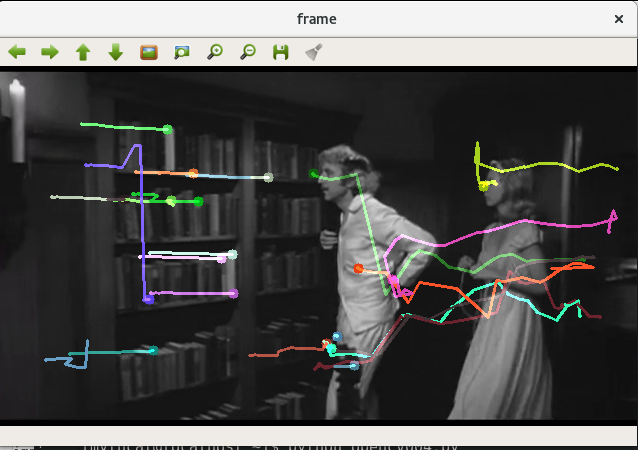The google team comes with this intro:
Protocol buffers are Google's language-neutral, platform-neutral, extensible mechanism for serializing structured data – think XML, but smaller, faster, and simpler...
This google project comes with these tutorials.
The GitHub project can be found here.
To install the compiler, download the package.
[mythcat@desk ~]$ cd Downloads/
[mythcat@desk Downloads]$ cp protobuf-python-3.9.2.tar.gz ~/
[mythcat@desk Downloads]$ cd ..
[mythcat@desk ~]$ tar xvzf protobuf-python-3.9.2.tar.gz
...
protobuf-3.9.2/aclocal.m4
protobuf-3.9.2/install-sh
protobuf-3.9.2/generate_descriptor_proto.sh
protobuf-3.9.2/CHANGES.txt
protobuf-3.9.2/configure.ac
protobuf-3.9.2/configure[mythcat@desk ~]$ cd protobuf-3.9.2/
[mythcat@desk protobuf-3.9.2]$ ls
aclocal.m4 config.sub ltmain.sh README.md
ar-lib configure m4 six.BUILD
autogen.sh configure.ac Makefile.am src
benchmarks conformance Makefile.in test-driver
BUILD CONTRIBUTORS.txt missing third_party
CHANGES.txt depcomp objectivec update_file_lists.sh
cmake editors protobuf.bzl util
compile examples protobuf_deps.bzl WORKSPACE
compiler_config_setting.bzl generate_descriptor_proto.sh protobuf-lite.pc.in
config.guess install-sh protobuf.pc.in
config.h.in LICENSE python[mythcat@desk protobuf-3.9.2]$ ./configure
...
checking how to run the C preprocessor... gcc -E
checking how to run the C++ preprocessor... /lib/cpp
configure: error: in `/home/mythcat/protobuf-3.9.2':
configure: error: C++ preprocessor "/lib/cpp" fails sanity check
See `config.log' for more details
...
[root@desk protobuf-3.9.2]# dnf install g++
...
Installed:
gcc-c++-9.2.1-1.fc30.x86_64
Complete![root@desk protobuf-3.9.2]# exit
exit[mythcat@desk protobuf-3.9.2]$ ./configure
checking whether to enable maintainer-specific portions of Makefiles... yes
checking build system type... x86_64-pc-linux-gnu
...
checking that generated files are newer than configure... done
configure: creating ./config.status
config.status: creating Makefile
config.status: creating scripts/gmock-config
config.status: creating build-aux/config.h
config.status: executing depfiles commands
config.status: executing libtool commands
[mythcat@desk protobuf-3.9.2]$ nproc --all
2
[mythcat@desk protobuf-3.9.2]$ make -j2
...
CXXLD protoc
make[2]: Leaving directory '/home/mythcat/protobuf-3.9.2/src'
make[1]: Leaving directory '/home/mythcat/protobuf-3.9.2'
[mythcat@desk protobuf-3.9.2]$ make check -j2
...PASS: protobuf-lazy-descriptor-test
PASS: protobuf-lite-test
PASS: google/protobuf/compiler/zip_output_unittest.sh
PASS: google/protobuf/io/gzip_stream_unittest.sh
PASS: protobuf-lite-arena-test
PASS: no-warning-test
PASS: protobuf-test
============================================================================
Testsuite summary for Protocol Buffers 3.9.2
============================================================================
# TOTAL: 7
# PASS: 7
# SKIP: 0
# XFAIL: 0
# FAIL: 0
# XPASS: 0
# ERROR: 0
============================================================================
make[3]: Leaving directory '/home/mythcat/protobuf-3.9.2/src'
make[2]: Leaving directory '/home/mythcat/protobuf-3.9.2/src'
make[1]: Leaving directory '/home/mythcat/protobuf-3.9.2/src'[mythcat@desk protobuf-3.9.2]$ sudo make install
[sudo] password for mythcat:
...
make[2]: Leaving directory '/home/mythcat/protobuf-3.9.2/src'
make[1]: Leaving directory '/home/mythcat/protobuf-3.9.2/src'
[mythcat@desk protobuf-3.9.2]$ sudo ldconfig [mythcat@desk protobuf-3.9.2]$ protoc --version
libprotoc 3.9.2[mythcat@desk protobuf-3.9.2]$ cd python/
[mythcat@desk python]$ ls
google MANIFEST.in mox.py README.md release release.sh setup.cfg setup.py stubout.py tox.ini
[mythcat@desk python]$ python setup.py build
...
testSerialize (google.protobuf.internal.unknown_fields_test.UnknownFieldsTest) ... ok
testSerializeMessageSetWireFormatUnknownExtension
(google.protobuf.internal.unknown_fields_test.UnknownFieldsTest) ... ok
testSerializeProto3 (google.protobuf.internal.unknown_fields_test.UnknownFieldsTest) ... ok
testByteSizeFunctions (google.protobuf.internal.wire_format_test.WireFormatTest) ... ok
testPackTag (google.protobuf.internal.wire_format_test.WireFormatTest) ... ok
testUnpackTag (google.protobuf.internal.wire_format_test.WireFormatTest) ... ok
testZigZagDecode (google.protobuf.internal.wire_format_test.WireFormatTest) ... ok
testZigZagEncode (google.protobuf.internal.wire_format_test.WireFormatTest) ... ok
----------------------------------------------------------------------
Ran 818 tests in 5.343s
OK (skipped=10)[mythcat@desk python]$ python3
Python 3.7.4 (default, Jul 9 2019, 16:32:37)
[GCC 9.1.1 20190503 (Red Hat 9.1.1-1)] on linux
Type "help", "copyright", "credits" or "license" for more information.
>>> import google
>>> from google.protobuf import descriptor as _descriptor
>>> from google.protobuf import message as _message
>>> from google.protobuf import reflection as _reflection
>>> from google.protobuf import symbol_database as _symbol_database
>>> from google.protobuf import descriptor_pb2
>>> from google.protobuf import text_format
>>> dir(_descriptor)
['Descriptor', 'DescriptorBase', 'DescriptorMetaclass', 'EnumDescriptor', 'EnumValueDescriptor',
'Error', 'FieldDescriptor', 'FileDescriptor', 'MakeDescriptor', 'MethodDescriptor', 'OneofDescriptor',
'ServiceDescriptor', 'TypeTransformationError', '_Lock', '_NestedDescriptorBase', '_OptionsOrNone',
'_ParseOptions', '_ToCamelCase', '_ToJsonName', '_USE_C_DESCRIPTORS', '__author__', '__builtins__',
'__cached__', '__doc__', '__file__', '__loader__', '__name__', '__package__', '__spec__', '_lock',
'api_implementation', 'six', 'threading']These message is a small logical record of information containing a series of name-value pairs called fields.
The protobuffers compiler (protoc) to generate the source code in the language you need (from the .proto file).
To generate a Python file, you need to execute:
protoc -I=$SRC_DIR --python_out=$DST_DIR $SRC_DIR/my_example.proto
Let's test with am example (you can use any proto file) in default folder (use . for default folder):
[mythcat@desk python]$ protoc -I=. --python_out=. my_example.proto
[mythcat@desk python]$ ls my_example*
my_example_pb2.py my_example.proto
[mythcat@desk python]$ python3
Python 3.7.4 (default, Jul 9 2019, 16:32:37)
[GCC 9.1.1 20190503 (Red Hat 9.1.1-1)] on linux
Type "help", "copyright", "credits" or "license" for more information.
>>> import my_example_pb2
>>> dir(my_example_pb2)
['AddressBook', 'DESCRIPTOR', 'Person', '_ADDRESSBOOK', '_PERSON', '_PERSON_PHONENUMBER', '_PERSON_PHONETYPE',
'__builtins__', '__cached__', '__doc__', '__file__', '__loader__', '__name__', '__package__', '__spec__',
'_b', '_descriptor', '_message', '_reflection', '_sym_db', '_symbol_database', 'sys']